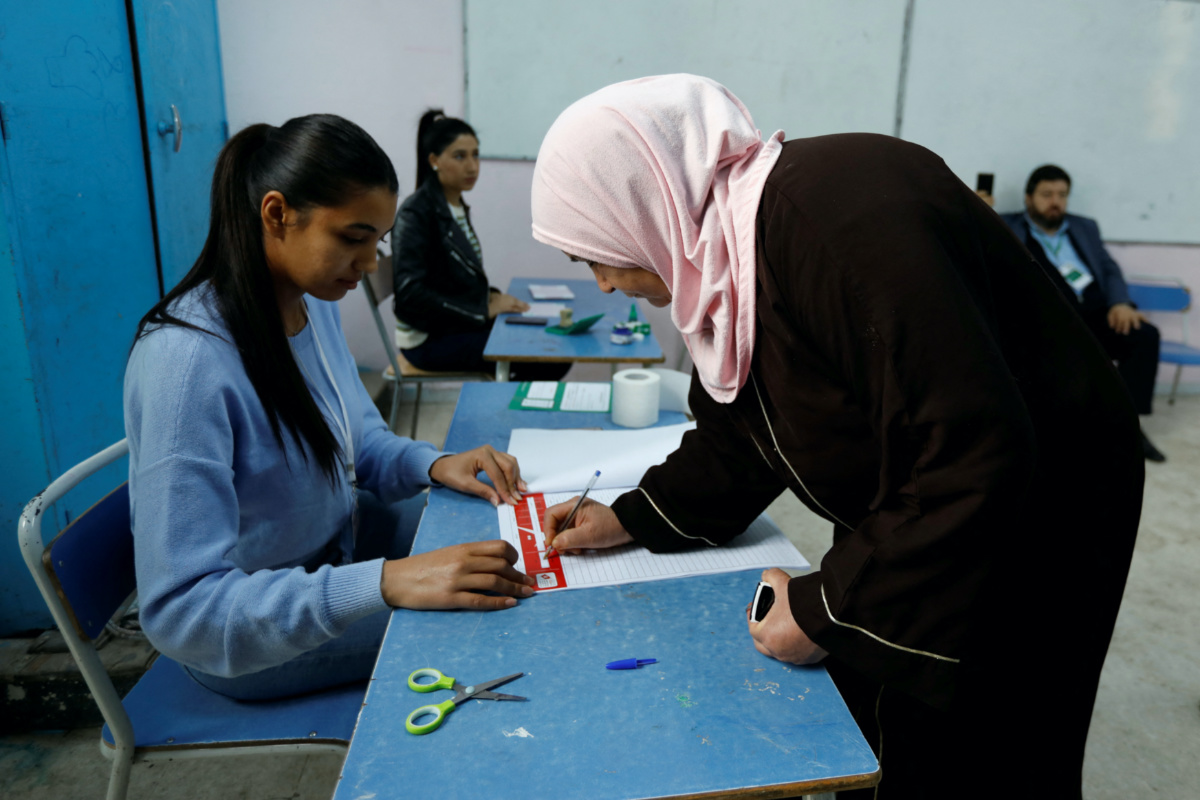Tunis, Tunisia
Reuters
Only 8.8 per cent of Tunisian voters cast ballots in Saturday’s parliamentary elections, authorities announced, after most political parties boycotted the vote as a charade aimed at shoring up presidential power.
The provisional turnout figure is lower than the 9.8 per cent inflation rate – underscoring the economic pressures that have left many Tunisians disillusioned with politics nearly 12 years after a revolution that introduced democracy.

A woman signs in to vote at a polling station during parliamentary election in Tunis, Tunisia, on 17th December. PICTURE: Reuters/Zoubeir Souissi
The vote is part of a series of political changes made by President Kais Saied since he shut down the previous, more powerful, parliament in July, 2021, and moved to rule by decree, amassing ever more power.
Saied wrote a new constitution this year which diluted the parliament’s powers, making it subordinate to the presidency and with little influence over government or policy.
The President has presented his political changes as necessary to save Tunisia from years of political paralysis and economic stagnation, and on Saturday morning urged voters to take part.
However, few Tunisians that Reuters has spoken to over recent weeks said they were interested in the election, seeing the new parliament as irrelevant and the vote as a distraction from an economic crisis wrecking their lives.
The economy shrank by more than eight per cent during the COVID-19 pandemic and the recovery has been slow. The government is seeking an IMF bailout that would require unpopular cuts in public spending. Meanwhile the crisis has caused food shortages.
The political parties that dominated the previous parliament, elected in 2019 with a turnout of about 40 per cent, have accused Saied of a coup for his shutdown of parliament last year and say he has instituted one-man rule.
Under Saied’s new electoral law, which he passed by decree, political parties would have had a far smaller role in the election even if they had taken part. Party affiliation was not included on ballot papers next to candidate names.
The electoral commission head, Farouk Bouasker, who announced the turnout figure described it as “modest but not shameful”, ascribing it to the new voting system and a lack of paid election campaigning.






